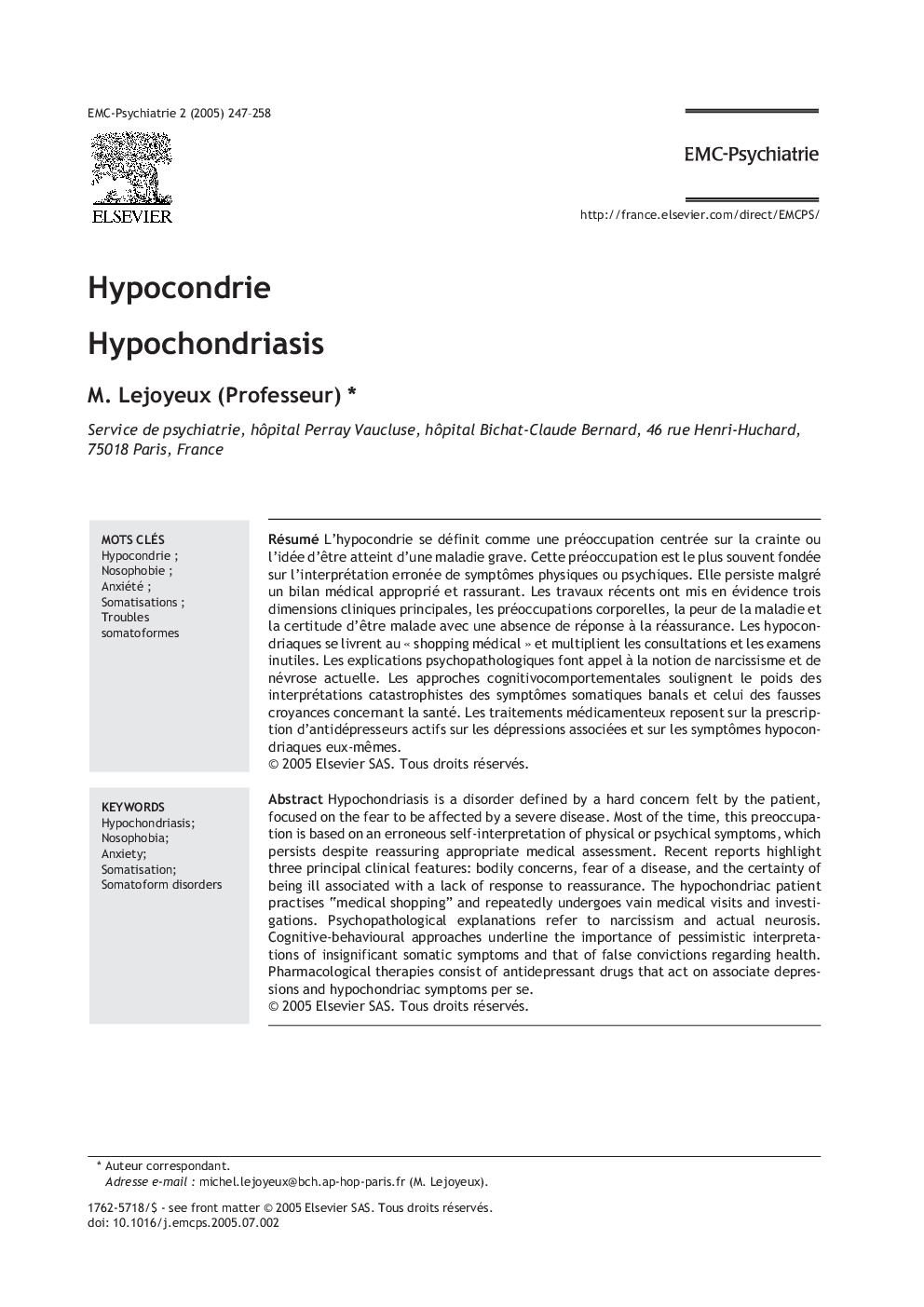| Article ID | Journal | Published Year | Pages | File Type |
|---|---|---|---|---|
| 9379420 | EMC - Psychiatrie | 2005 | 12 Pages |
Abstract
Hypochondriasis is a disorder defined by a hard concern felt by the patient, focused on the fear to be affected by a severe disease. Most of the time, this preoccupation is based on an erroneous self-interpretation of physical or psychical symptoms, which persists despite reassuring appropriate medical assessment. Recent reports highlight three principal clinical features: bodily concerns, fear of a disease, and the certainty of being ill associated with a lack of response to reassurance. The hypochondriac patient practises “medical shopping” and repeatedly undergoes vain medical visits and investigations. Psychopathological explanations refer to narcissism and actual neurosis. Cognitive-behavioural approaches underline the importance of pessimistic interpretations of insignificant somatic symptoms and that of false convictions regarding health. Pharmacological therapies consist of antidepressant drugs that act on associate depressions and hypochondriac symptoms per se.
Keywords
Related Topics
Health Sciences
Medicine and Dentistry
Psychiatry and Mental Health
Authors
M. (Professeur),
